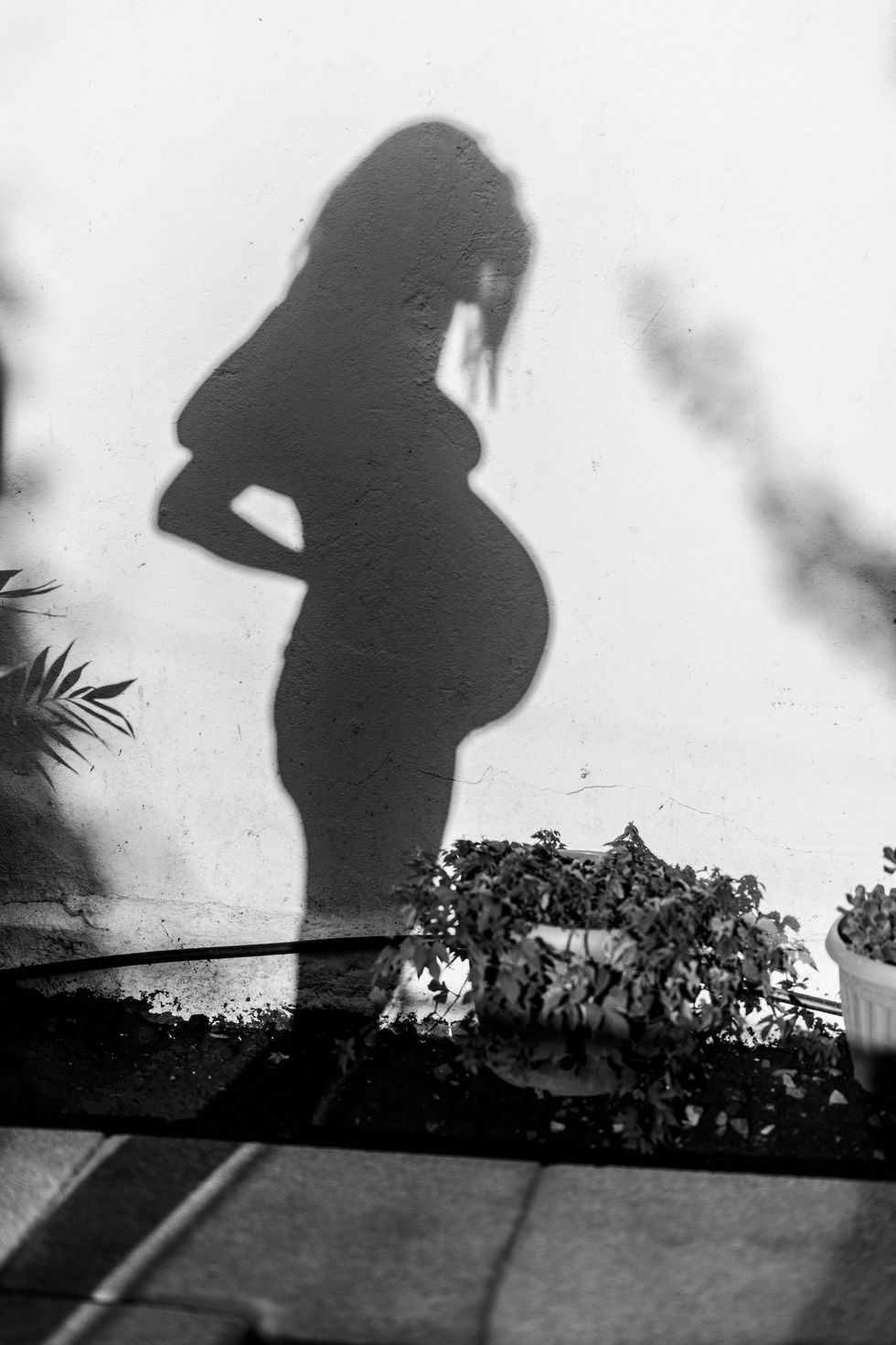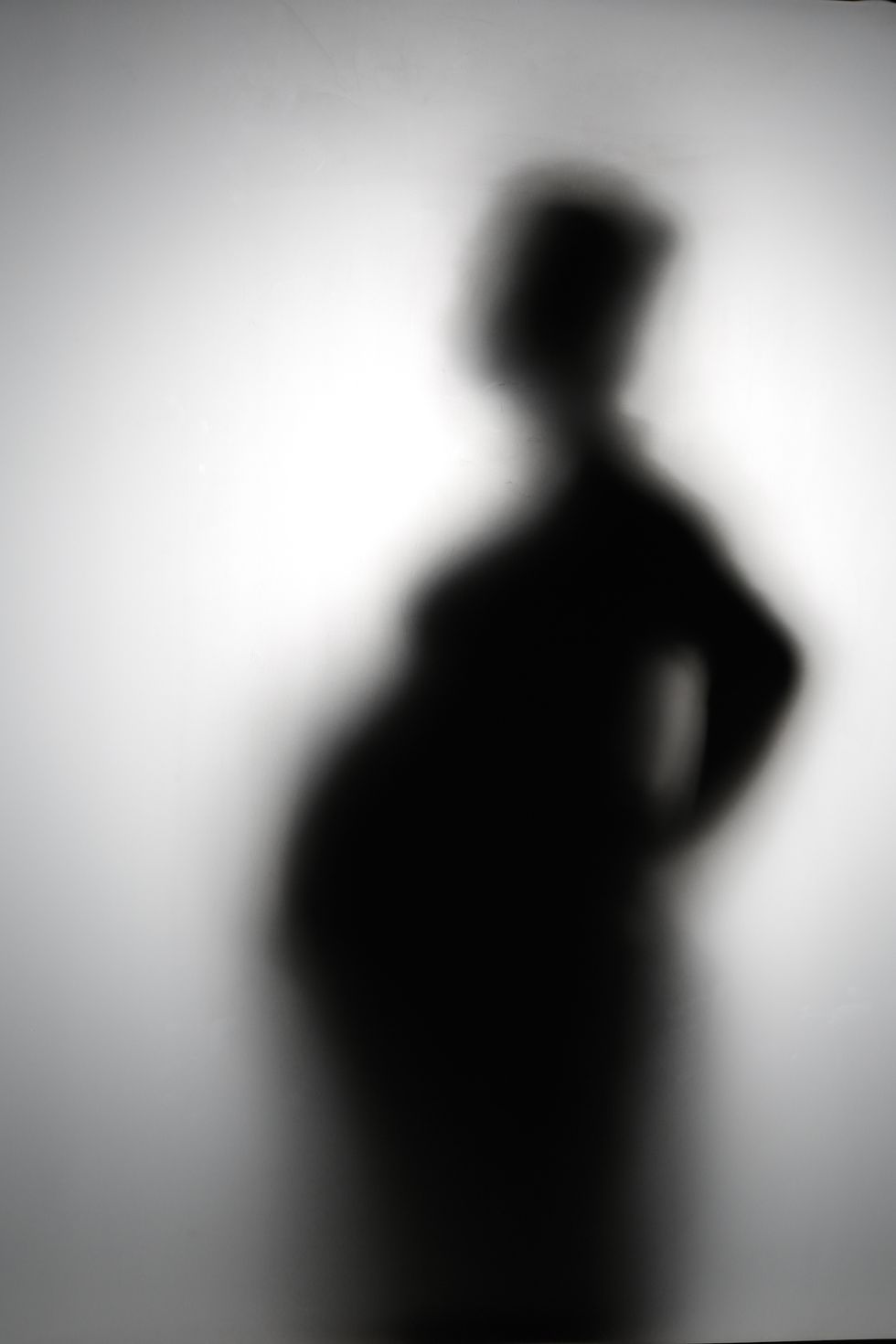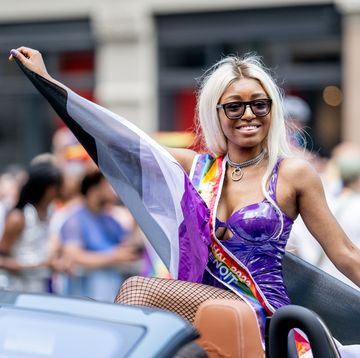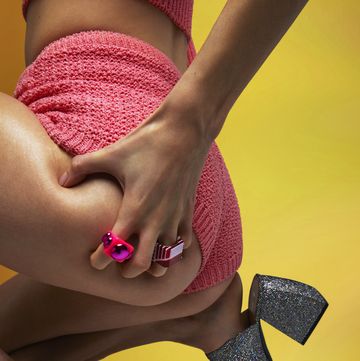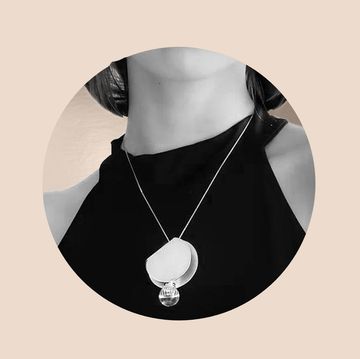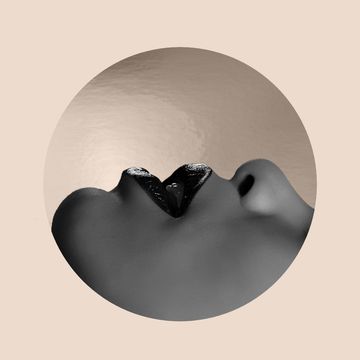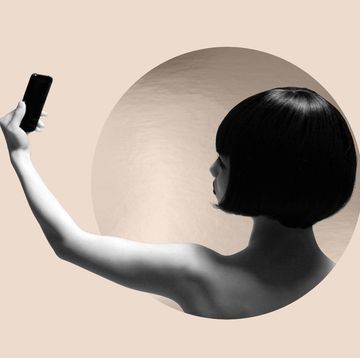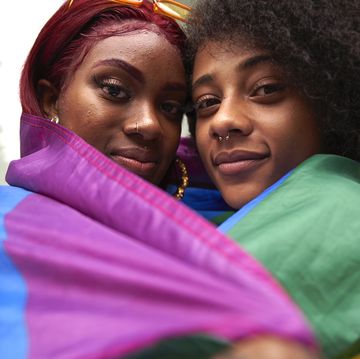Fertility Focus - ELLE explores the myriad experiences and emotions during a person's fertility journey, from surrogacy and miscarriage to hyperfertility and baby loss.
There hasn't been single day in the last seven years when I haven't not wanted a baby. That’s a huge admission, one that gives even me the 'ick', but it’s true. But despite how desired, needed, and sought after my pregnancy was – is – to me, I've uncovered a darker underbelly about motherhood I couldn't have foreseen.
I was 30 years old when I first realised that I wanted a family. At the time, I was in a relationship with someone I loved, and who loved me, but who it turned out didn’t want kids yet. Eventually, that factor drove us apart three years later. He wasn’t ready, and I was. Tale as old as time (or at least, Tinder).
After my break-up, I was single for four years. I did all the things you’re 'meant to do' in that scenario. I froze my eggs. I multi-dated. I had therapy. I felt good. Great. Lonely. Scared. Exhilarated. Tired. But deep down I carried the fear that motherhood would never happen for me. In my inner circle of friends and colleagues, everyone I knew was becoming pregnant. At one point I was forced to mute half of my social circle on Instagram – too flooded my feed had become with images of baby scans, newborn grows, and tiny wrinkly feet. The deep sadness and fear I carried of being unable to become a mother prohibited me from celebrating in their joy.
Then I met him. At the end of 2022 I found a man I finally could see a future with. A man I fancied, liked, respected and laughed with. Above all, a man who wanted the same things as me in life. In the early days, we broached the conversation about kids – one in particular brought on after I received some worrying news from my GP about my fertility. The message? 'Start trying, right away.'
Thankfully my boyfriend was incredibly supportive. 'We both want this eventually, let’s just start trying and see what happens,' he said. Four weeks later came the appearance of two blue lines on a pregnancy test. We thought it could take months, years even, to get pregnant. We were both delighted. He cried happy tears, while I sat on the sofa grinning in shocked silence. It had been four months since our first date.
Then the terror set in. Some of my fears were ‘normal’: what if I miscarried? What if he and I broke up? What if the baby wasn’t healthy? Others, however, were more unexpected and complex. As the months of my first trimester ticked on, I wrestled with an unfamiliar sense of conflict. While it’s not uncommon for expecting parents to not want to tell their friends, family or colleagues until after the 12 week scan, I found myself wondering if I could keep my pregnancy a secret even longer. As friends and influencers on Instagram shared their own pregnancy news online, I, as someone who regularly posts the big and small milestones of my life, couldn’t muster the language to share my own.
At work, I felt particularly secretive. My pregnancy occurred in the backdrop of big change for my organisation – exciting change. Change that might result in new career opportunities. Yet, despite wanting my baby for so long, I couldn’t (wouldn’t) turn off the career-minded part of my brain which feared my pregnancy could impact my prospects.
Then there were other, darker feelings. What if I told my family and then lost the baby? Would they in someway be disappointed in me? How would my friends and colleagues react to the news? After all, most people were aware how little time I’d been with my partner. Would people think I ‘baby trapped’ (a hateful phrase) him?
As my baby grew, so too did my concerns of how my single and child-free-by-choice friends – my support ecosystem that has kept me sane over the last four years – would feel. Would they disown me as ‘one of them’ – the women we all knew who’d basically dropped us the minute they became mothers? In the back of my mind, I couldn't shun the guilt of how my pregnancy news would land for those in my immediate and wider circle who’d experienced miscarriage and baby loss. The idea of adding any more trauma to their days weighed heavily.
All of these disparate feeling and fears added up to one thing: an underlying sense of shame about my pregnancy. At home with my boyfriend, I was overjoyed. But everywhere else existed a tension between how I thought a pregnant person of 37 should act and feel – how I’d always assumed I’d feel if I was ever lucky enough to get pregnant – and how I was acting in reality. I couldn’t even step foot into a baby shop until I was five months pregnant. I felt like a fraud. At a recent baby shower for a friend, the well-meaning eco-chamber of ‘advice’ and excitable questions nearly brought me to tears. Tears of frustration at myself, and society, for not giving other narratives of pregnancy - the ones you don't see on Instagram or read about in parenting books - more air time.
Dr Samantha Rennalls, co-founder of Abode Therapy, says she has a growing number of female patients who experience conflicting emotions in pregnancy. She particularly differentiates between the ‘socially permissible worries’ of not being a good mum, losing the baby and health anxiety, and other 'far less spoken about emotions such sadness, grief, shame, guilt, anger, fear and disgust'.
According to Rennalls, often these feelings arise because the story of the pregnancy in question 'doesn’t fit the norm within their personal community'. She explains that 'the shame occurs when the person locates the problem in themselves, rather than in the limited expectations of others. It is a normal social process to experience shame and to want to fit the group norms, however it is also unrealistic that the pregnancy experience is a monolith… Different does not mean wrong'.
Layer onto this the conflicting way in which social media has infiltrated and altered the pregnancy and motherhood experience, and you have the perfect storm for what I can only describe in myself as cognitive dissonance: I was behaving in a way that didn’t chime with the true excitement and joy I knew I felt about this baby. Even the way I told people that I was pregnant was muted. Downplayed slightly. Awkward. I’d change the subject back to them as quickly as I could or make a disparaging comment about motherhood - the very thing I'd dreamed of for so long.
Failing to share my pregnancy news on social media became part of this dissonance. '[Because of social media] people are under more pressure than ever before to share so many details of their personal lives, particularly life milestones. People sometimes describe feeling as though their significant life event is not real, didn’t happen or isn’t significant enough if it’s not shared,' says Rennalls. Thankfully I felt my baby kick before I put anything on social media about his existence. But until that point, I’m ashamed to admit that having nothing about it on social media did make it feel less real. Sure, I threw up four times a day for three months. But if it’s not on Instagram… did it even happen?
I’m pleased to say that five months into my pregnancy, any feelings of shame or guilt have finally started to slink away, replaced by all the fizzing excitement I've been burying through a misguided sense that I’d be judged, ostracised, or held up to some pregnancy merit chart and found lacking. I've come to realise that I was the one judging myself the most. Thankfully, the love and joy I feel for this much-longed-for little person growing inside me is already so strong, it’s finally overridden my inner critic.
In recent years, society has made great strides in normalising the various faces of pregnancy and motherhood – from being child-free by choice, infertility, baby loss, to the LGBTQIA+ parenting experience (although there’s still work to be done on closing the deadly health gap that persists for Black pregnant women in the UK). But perhaps it’s time to normalise a different type of conversation around pregnancy shame, and the huge spectrum of emotions that women experience during an intense physical and psychological period of change. As I've learnt, different doesn’t mean wrong. In all other aspects of life and culture we're told to embrace difference. The case for doing so in pregnancy is long overdue.
You can follow Amy on Instagram: @amygrier17

